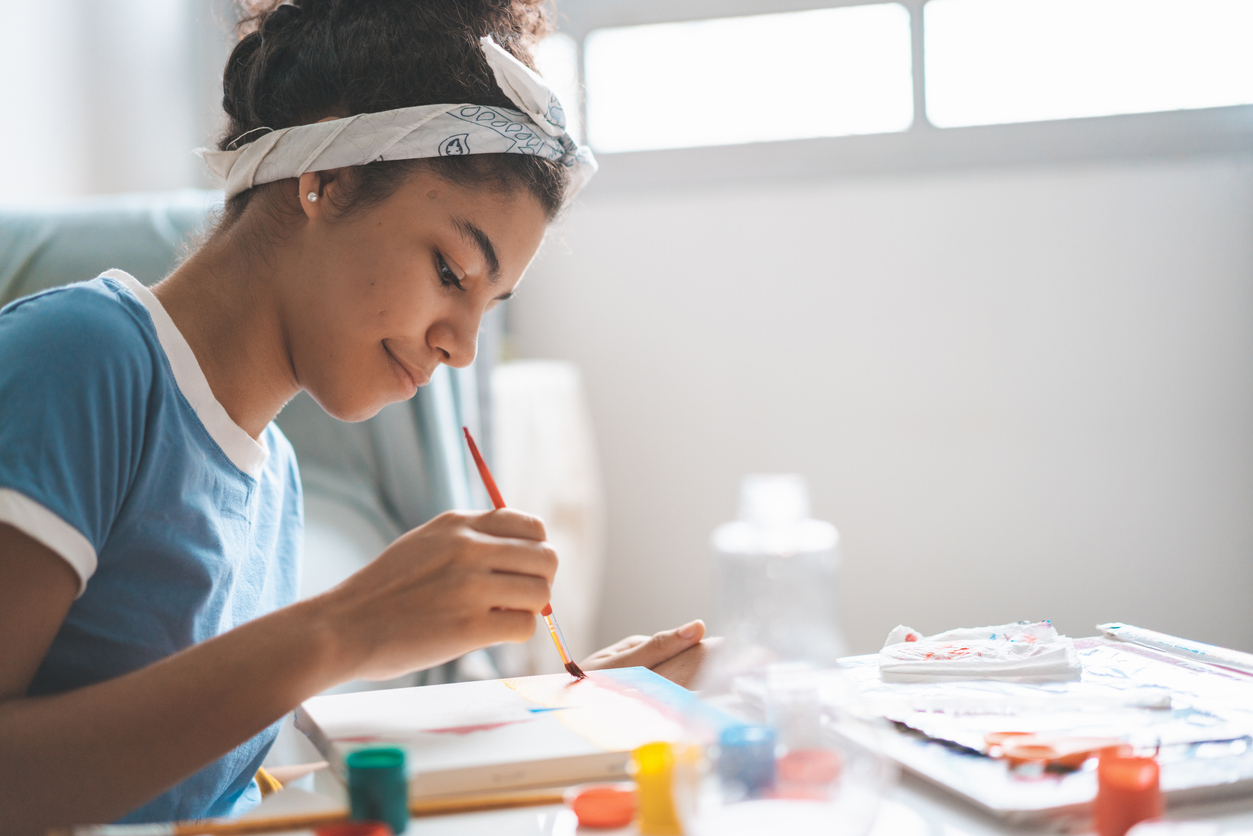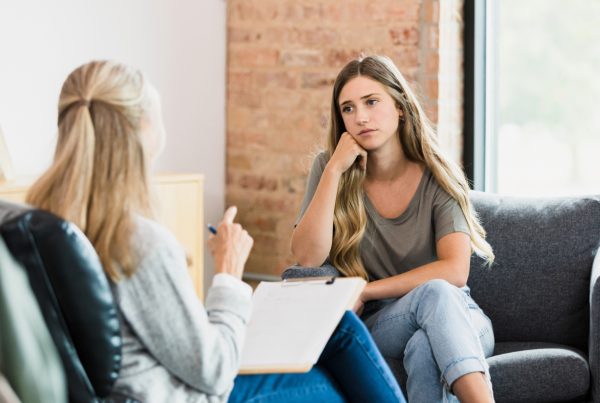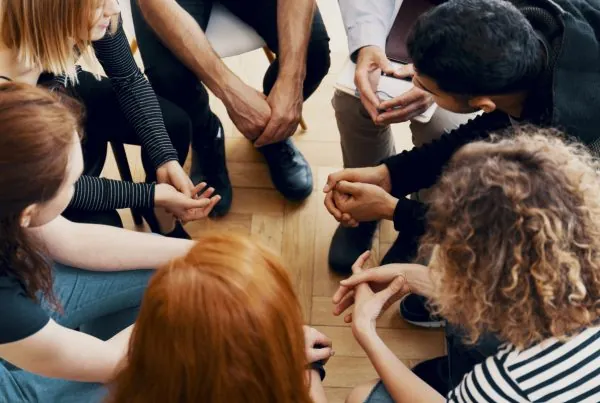Exploring therapy activities for teens offers numerous benefits, including enhancing emotional expression, promoting self-awareness, and fostering resilience. These activities provide a safe space for teens to explore and understand their feelings, develop coping strategies, and build confidence through group activity, ultimately improving emotional regulation. Parents and caregivers should also be aware of potential red flags in teenage behavior that may indicate underlying struggles, making such activities all the more critical.
Engaging in therapy can also enhance communication skills, support mental health, and foster positive behavioral changes, all of which are crucial for adolescent development and overall well-being.
Seeking healthy therapeutic activities for teens? Therapy activities for teens are not just about talking; they involve creative, engaging, and effective methods to help teens express themselves, understand their emotions, and build essential life skills.
Imagine your teen learning to manage stress, communicate more effectively, and gain confidence through engaging and therapeutic activities. These activities are designed to resonate with teens, making therapy something they look forward to rather than shy away from.
In this article, we explore 15 healthy therapy activities for teens.
Engaging in healthy therapy activities offers significant mental health benefits for teens.
These activities are tailored to meet the unique developmental needs of adolescents, providing them with tools to navigate emotional challenges. They foster emotional awareness and emotional intelligence, which are crucial during these formative years.
Through such activities, teens build self-awareness, manage stress, and develop coping mechanisms. This proactive approach to mental wellness addresses current issues and equips teens with lifelong skills for emotional resilience. By participating in these therapeutic activities, teens can build a strong foundation for their mental health and overall well-being.
Here are some therapeutic activities for teens that can help improve and support their mental health and well-being.
Introduction
Group therapy is a powerful tool for supporting adolescents as they navigate the therapeutic process and the challenges of growing up. It provides a safe space for teens to connect with peers and work through personal issues. Effective group cohesion can help engage participants, foster personal growth, and aid mental health treatment. Group therapy can help individuals learn new coping skills, work on building their future self, and master their communication skills alongside others. It can be used to address various issues, such as academic stress, emotional growth, and self-care.
Benefits of Therapy for Mental Health
Therapy is a highly effective way to improve mental health and well-being in teens. By participating in therapy activities, adolescents can develop essential coping skills, build resilience, and enhance their overall mental health. Therapy provides a safe and supportive environment for teens to express themselves, explore their emotions, and develop healthy relationships. Through therapy, teens can learn to manage stress, anxiety, and other emotional challenges, leading to improved mental health outcomes and a stronger sense of self.
Expressive Arts Group Therapy
Expressive arts aren’t limited to a single canvas or medium. During expressive arts therapy, teens are encouraged to utilize a variety of media to express what they might not be able to express face-to-face, on paper, or through their voice. A creative outlet can be freeing, but it can also be an opportunity for greater emotional awareness and introspection.
Group members can collaborate on art projects, sharing their creative expressions and fostering a sense of community and mutual understanding.
Outdoor Group Activities
The benefits of the great outdoors on the human psyche are well established. We have a connection to nature, and spending more time around it can help us feel calm, improve our mood, and even positively impact our physical health – more so than just walking around.
Mindfulness Meditation for Mental Health
Meditation techniques can be challenging to learn, but mindfulness exercises offer a step-by-step approach for teens to learn how to live in the moment and reap the mental benefits of sidestepping rumination or a negative spiral. These exercises are often incorporated into therapy sessions, providing a structured environment where teens can practice mindfulness, focus on the present moment, and develop their self-reflection skills.
Journaling for Coping Skills
Consistently writing down your daily thoughts and experiences – whether in a structured diary entry, a list of keywords, or through a stream-of-consciousness approach – can help teens reflect on their experiences, review emotional outbursts or strong feelings with a sense of introspection, and focus on the positive aspects versus the negative. Journaling can also be incorporated into motivational group therapy activities, where teens share their entries and offer supportive feedback to one another.
Music Therapy
Just as expressive art therapy helps teens convey emotions through a physical medium, music therapy aims to do the same via music. Some teens are not just musically inclined but actually have a much greater emotional connection to music and can feel and share much more through sound than through words or pictures. Collaboration is also a crucial aspect of music, emphasizing the importance of social skills.
In teen group therapy, music can serve as a powerful tool for connection, enabling participants to create and share music together, thereby fostering a sense of unity and collaboration.
Animal-Assisted Therapy
Working with and caring for animals can help calm teens, give them a sense of purpose, and boost their self-esteem. Animal-assisted therapy also leverages the fact that we tend to feel better when we’re doing something for someone else. It helps teens and young adults cultivate feelings of responsibility toward others and develop empathy, learning to relate to people with greater compassion. Therapy groups involving animals can challenge teens to build trust and empathy as they work together to care for and interact with the animals.
Yoga
Teenagers can increase their physical activity through mindfulness and relaxation by practicing a new kind of exercise while learning to incorporate mindfulness into their physical approach.
Group therapy sessions that include yoga can help teens learn to relax and connect with their peers through shared physical and mindfulness practices.
Adventure Therapy
Adventure therapy emphasizes teamwork in both outdoor and indoor environments, utilizing obstacle courses or even escape rooms. These help teens learn to work together and foster critical and problem-solving skills. Each group member plays a crucial role in adventure therapy activities, working together to overcome challenges and build trust.
Drama Therapy
Drama therapy utilizes roleplaying and stage preparation (including prop and costume creation) to help explore different roles and discuss therapeutic lessons through the lens of a figure or character, especially for teens who aren’t otherwise able to process their own experiences at the moment.
Volunteer Work
Spending time giving back to others can be cathartic and deeply rewarding. Volunteer work teaches teens to benefit from selflessness and aspire to continue making a positive impact on others, expecting nothing in return.
Narrative Therapy
While drama therapy focuses on each of the elements necessary in theater, narrative therapy specifically harnesses your own experiences as a therapeutic tool for teens who may benefit from re-exploring their lives through a different, more positive, and constructive lens.
Dance Therapy
While some teens use music or a canvas to express themselves, others can use their bodies through dance. Dancing as a form of exercise, creative expression, and even active mindfulness helps teens positively process their emotions and experiences.
Mind-Body Connection Exercises
For teens who may not respond to yoga or dance, there are other mind-body connection exercises, including deep breathing exercises, self-practice martial arts, and even weight training.
Cooking or Baking Classes
Cooking and baking are valuable life skills, but they also help teens explore a different kind of constructive creativity while directly benefiting from their labors of love.
Coping Skills and Stress Management
Coping skills are essential for teens to manage overwhelming emotions and stress.
Group therapy activities can help teens develop healthy coping skills and reduce stress. For example, the “Worry Journal” activity encourages teens to write down their thoughts and feelings, helping them identify patterns and develop coping strategies to manage their worries. The “Gratitude Scavenger Hunt” activity helps teens focus on the positive aspects of their lives, promoting a positive attitude and increasing their well-being. These activities can be adapted to suit the needs and preferences of the group, making them an effective tool for promoting positive mental health.
Additionally, focusing on the present moment through activities such as gratitude mapping and grounding exercises can further enhance mindfulness and self-awareness, thereby aiding in stress relief during challenging times.
Social Skills and Communication
Group therapy activities can help teens develop social skills and improve communication.
The “Human Knot” activity encourages teamwork and communication, helping teens develop problem-solving skills and build trust with their peers. The “Two Truths and a Lie” activity helps teens build connections and learn more about their peers, promoting social skills and empathy in the process.
These activities can be used in conjunction with other therapy activities to enhance the therapeutic process, promoting positive mental health and personal growth.
Family and Social Connections
Therapy activities can also help teens build and maintain positive relationships with family and friends. By participating in group therapy activities, adolescents can develop essential social skills, such as communication, empathy, and conflict resolution.
These skills are crucial for building and maintaining healthy relationships with family and friends. Additionally, therapy can help teens navigate complex family dynamics and develop strategies for managing conflicts and improving relationships.
Building Positive Thinking and Resilience
Therapy activities can also help teens build positive thinking and resilience. By participating in activities such as art therapy, mindfulness, and meditation, adolescents can develop a more positive outlook on life and learn to manage stress and anxiety. These activities can also help teens develop a growth mindset, learn to reframe negative thoughts, and build resilience in the face of challenges.
By cultivating positive thinking and resilience, teens can enhance their overall mental health and well-being, ultimately leading to a happier and healthier life.
Self-Esteem and Confidence
Group therapy activities can help teens develop self-esteem and confidence.
The “Self-Compassion Pause” activity encourages teens to be kinder to themselves, helping them develop a more positive self-image. The “Compliment Circle” activity helps teens feel valued and appreciated, boosting their self-esteem and confidence.
These activities can be used to promote positive mental health and personal growth, fostering greater emotional intelligence and helping teens develop a more positive outlook on life.
Conclusion
Experiential therapies and therapeutic activities can be more engaging than group therapy or individual therapy sessions in a classroom or residential setting.
Sometimes, teens struggle to apply lessons taught in therapy to their day-to-day lives. Engaging with teen clients on a physical or creative level helps them better understand the lessons taught during therapy and facilitates their internalization of treatment goals. These experiences also help create lasting memories that teens can draw on later in real-life situations.
At Visions, we focus on holistic treatments. We believe that it is essential to provide a multimodal approach to mental health treatments, and our teen treatment programs help teens cultivate an extensive repertoire of valuable tools for their long-term mental health while addressing the current state of their condition. Contact us today to learn more about our residential treatment program and other treatment modalities.









